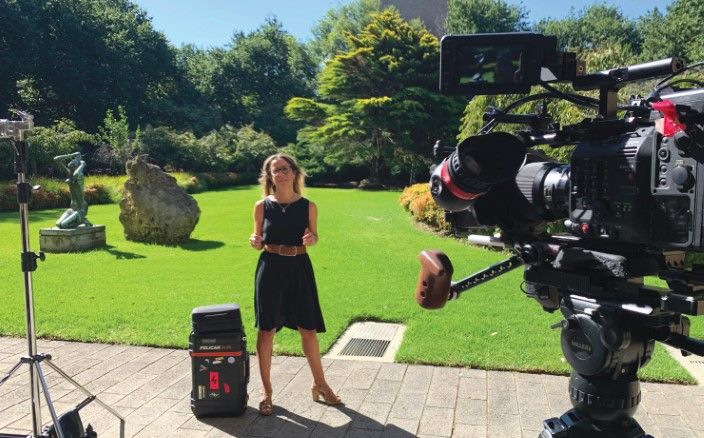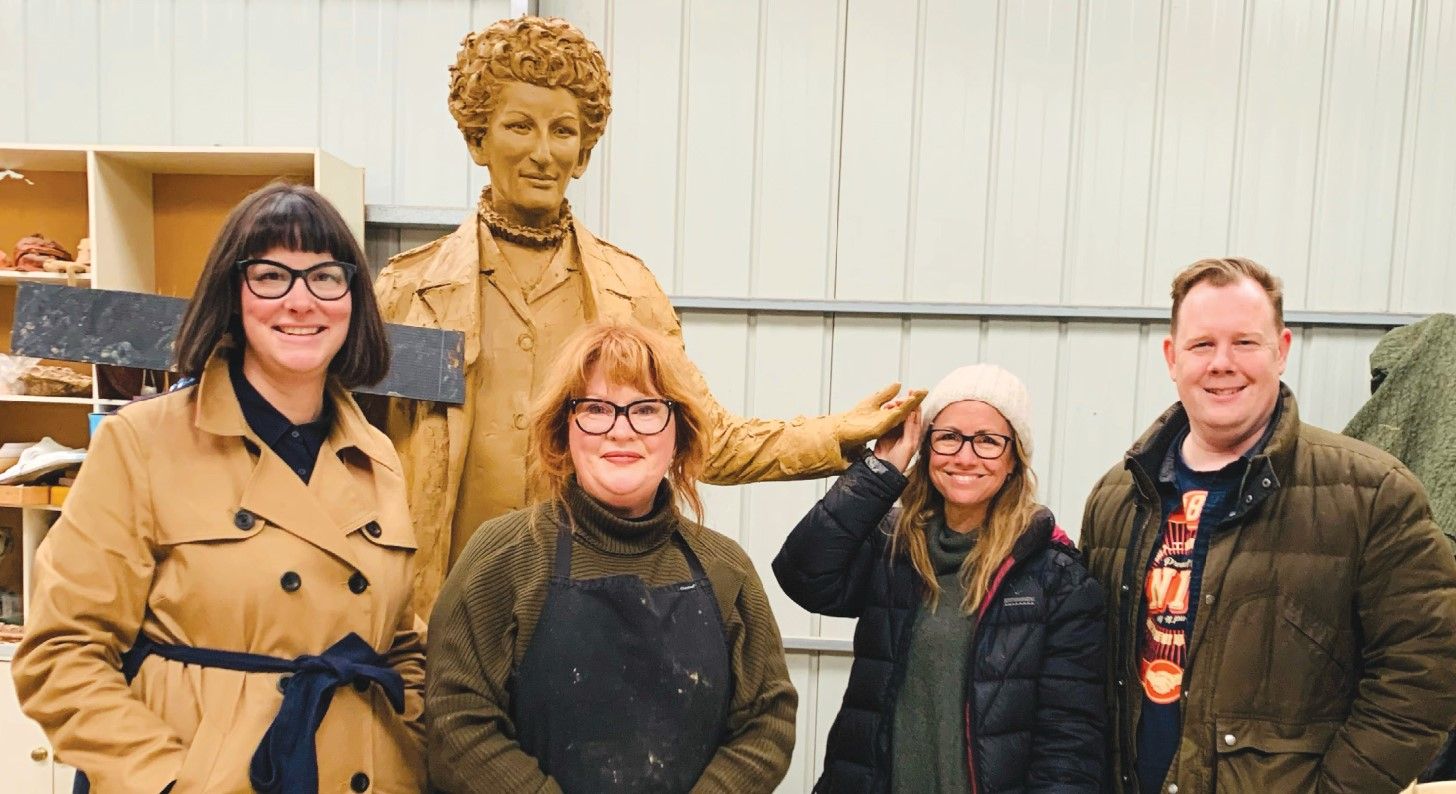Historian Professor Clare Wright has raised the profile of her profession and many causes, but she remains an introverted activist and an unofficial mentor, she tells Will Brodie.
Professor Wright finds it hard to say no, and she says no “six times a week”.
When we meet for our interview at a café, she displays this quality immediately. Having ordered a pot of tea to keep herself awake after a night of writing until 3am, she starts chatting with the young woman at the cash register. They discuss what Professor Wright is writing about and the cashier’s career path, and it’s clear IE will have to wait a few minutes.
Professor Wright is one of a rare breed in modern Australia: the public intellectual. She’s achieved that by saying ‘yes’ – endlessly.
It makes her crazy busy. In the week we talked, she also slaved away on her latest book; sat alongside Senator Penny Wong at a federal election campaign launch; took calls about an upcoming TV production; visited Ballarat to attend the 10-year anniversary of the Stella Award for Women’s Writing (which she won in 2014 for The Forgotten Rebels of Eureka); and worked on her Archive Fever podcast series with Yves Rees.
She also promoted ‘A Monument of One’s Own’, a campaign to have more statues of famous women erected. Did you know only 4 per cent of Australian statues represent historical female figures? That’s a classic Clare Wright mission – to publicise a startling and previously unheeded truth.
In this packed week, Professor Wright also took part in a seminar on gendered violence, in which she experienced an exciting phenomena – an all-women panel. Professor Wright says even supportive, supposedly feminist men can tend to take over at such events.
“It just happens so frequently and it’s part of the ether – men don’t even notice it – but women know it happens all the time,” she says.
“We internalise from such an early age that men are the ones who are entitled to be taking up the space, that we give it over as well.”
When there are no men on a panel, Professor Wright says, “Women just have a riotous good time! There’s this energy which just lifts the roof off.”
The mother of two boys, she empathises with the difficulties males navigate. But her advice to them is simple: “If you’re not sure, communicate, talk. You’re at the top of the pyramid. You are white, you are male. You are well educated. English is your first language”.
Patriarchy not loosening grip
Professor Wright is as blunt about society: “Our patriarchy is not going to give up power. Patriarchy is a systemic form of oppression. Individual men do not give up their power without a fight”.
It’s hard to believe she ever, even subconsciously, defers to anyone, but Professor Wright insists she is timid by nature and needed theatre classes as a child to improve her social skills.
“I worked to overcome my introversion. I was an only child. I grew up mostly around adults.”
American-born, she moved to Australia with her mother at five years of age. Her mum was a tech school teacher, her stepfather taught at La Trobe University. Professor Wright says she was “raised with a very anti-elitist temper and very much with a democratic ethos”.
From Year 9 onwards she attended Mac.Robertson Girls’ High School in Melbourne – one of few Victorian selective schools – which suited her “perfectly”.
“I found my people,” Professor Wright says. “There really was this ethos that girls could do anything; there was no reason anything about our gender should hold us back from anything we might want to do in life.”
The school was a meritocracy where “you could aspire to be whatever you wanted to be”.
“That wasn’t taught to us as feminism per se, it was just the ethos of the school,” she says. Surrounded by high achievers and excellent teachers she loved, Professor Wright thrived.
Professor Wright says she was not a “natural activist”, but she now realises school provided her first taste of campaigning.
When a Student Representative on the School Council, she confronted her school leaders over the Christian content of songs chosen for massed singing at the end-of-year gala.
She’d noticed the “silent dissent” of non-Christian girls who weren’t singing, and felt their voices were “literally being stifled”.
Professor Wright, who is Jewish, was made to “feel foolish” for her rejection at the time, but at the next year’s gala, a Russian folk song was sung.
It taught her that seeking change can bring both humiliation and exhilaration. It revealed an “outsider’s perspective” derived from being a “first generation immigrant from a minority religion”.
That meant she was “kind of outside looking in” at Australian life and culture.
“I didn’t necessarily take for granted the things that other people take for granted,” she says.











































































































































